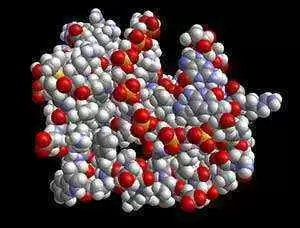Celiac.com 12/29/2014 - While the immune response to gluten proteins in celiac disease has been well researched, and is pretty well understood, researchers really don’t know much about the immune response to non-gluten proteins in wheat. A team of researchers recently set out to determine the level and molecular specificity of antibody response to wheat non-gluten proteins in celiac disease.
 The research team included Sina Huebener, Charlene K. Tanaka, Melanie Uhde, John J. Zone, William H. Vensel, Donald D. Kasarda §, Leilani Beams, Chiara Briani, Peter H. R. Green, Susan B. Altenbach, and Armin Alaedini. They are variously affiliated with the Department of Medicine at Columbia University in New York, New York, USA, the Celiac Disease Center at Columbia University in New York, New York, USA, the Western Regional Research Center, Agricultural Research Service of the United States Department of Agriculture in Albany, California, USA, the Department of Dermatology at the University of Utah in Salt Lake City, Utah, USA, the Department of Neurosciences at the University of Padova, in Padova, Italy, and the Institute of Human Nutrition at Columbia University in New York, New York, USA.
The research team included Sina Huebener, Charlene K. Tanaka, Melanie Uhde, John J. Zone, William H. Vensel, Donald D. Kasarda §, Leilani Beams, Chiara Briani, Peter H. R. Green, Susan B. Altenbach, and Armin Alaedini. They are variously affiliated with the Department of Medicine at Columbia University in New York, New York, USA, the Celiac Disease Center at Columbia University in New York, New York, USA, the Western Regional Research Center, Agricultural Research Service of the United States Department of Agriculture in Albany, California, USA, the Department of Dermatology at the University of Utah in Salt Lake City, Utah, USA, the Department of Neurosciences at the University of Padova, in Padova, Italy, and the Institute of Human Nutrition at Columbia University in New York, New York, USA.
Celiac.com Sponsor (A12):
Together, the team screened blood samples from celiac patients and control subjects for IgG and IgA antibody reactivity to a non-gluten protein extract taken from the wheat cultivar Triticum aestivum Butte 86.
They also analyzed the antibodies for reactivity to specific non-gluten proteins by two-dimensional gel electrophoresis and immunoblotting. They used tandem mass spectrometry to identify any immuno-reactive molecules.
They found that, compared with healthy control subjects, celiac patients showed significantly higher levels of antibody reactivity to non-gluten proteins. The main immuno-reactive non-gluten antibody culprit proteins were serpins, purinins, α-amylase/protease inhibitors, globulins, and farinins.
Assessment of reactivity toward purified recombinant proteins further confirmed the presence of antibody response to specific antigens.
These results show that, in addition to the well-understood immune reaction to gluten, people with celiac disease experience reactions to a number of non-gluten proteins of wheat.
The short take away is that the bodies of people with celiac disease show clear immune responses, not just to gluten proteins in wheat, but to non-gluten proteins, as well.
Source:
- Open Original Shared Link






Recommended Comments